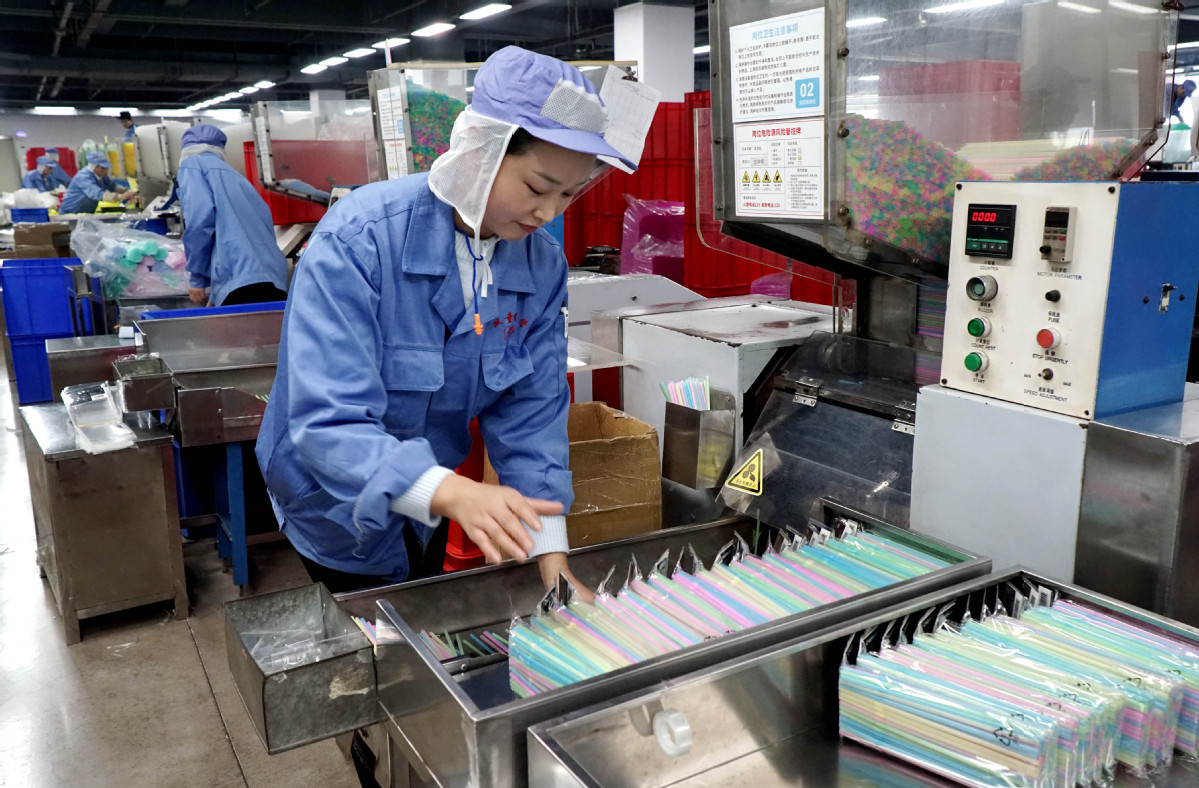Straws going green amid ecological concern


Plastic varieties can take centuries to decompose into particles, while newer versions are designed to quickly biodegrade
For bubble tea buff Ding Yi, it's the third time this week that his drink tasted like wet cardboard, with the culprit being a paper straw.
"My milk tea tasted awful, and the paper straws got soft and partly dissolved after a period of time in the drink, which made it hard to suck up the chewy tapioca balls. I'm considering switching to bubble tea stores that offer polylactic acid straws, which I heard have less impact on taste compared with paper equivalents," Ding said.
PLA is a form of biodegradable plastic that is produced from renewable resources. The material can be decomposed into carbon dioxide and water and produced from plant-based feedstock such as corn.
Since China upgraded its plastic restrictions last year, non-degradable single-use plastic straws have begun to be phased out of the catering industry starting from late 2020, and environmentally friendly straws are having their new moment in the sun. Experts said paper straws, PLA alternatives and other similarly themed products are creating billion-dollar businesses, despite the jury still being out on their impact on the taste of the beverages.
"Although we only use plastic straws for a few moments, it can take hundreds of years for them to decompose. Most plastic straws are single-use as recycling is very problematic due to technological limitations and prohibitive costs," said Lin Boqiang, head of the China Institute for Studies in Energy Policy at Xiamen University.
"Most plastic straws in China are buried in landfills as other means of disposal are much more costly or lack technical support. However, plastics decompose extremely slowly in soil. When dumping plastics into landfills, they usually decompose into nano-sized plastic particles. These particles are often consumed by wildlife and eventually enter into humans, causing great harm to health, the ecosystem as well as the environment," Lin said.
China's consumption of plastic straws is huge, according to a report by China Central Television. The report said the cumulative output of plastic straws was about 30,000 metric tons in 2019, and the average annual plastic straw use per capita stood at over 30 units.
- Chinese researchers reveal responses of desert ecosystems to climate change
- Virus likely to slightly rebound throughout the world
- From local to global -- Xi Jinping's devotion to anti-poverty causes
- Four key takeaways from Xi's southwestern tour
- Chinese miracle in poverty alleviation worthy of emulation by world




































